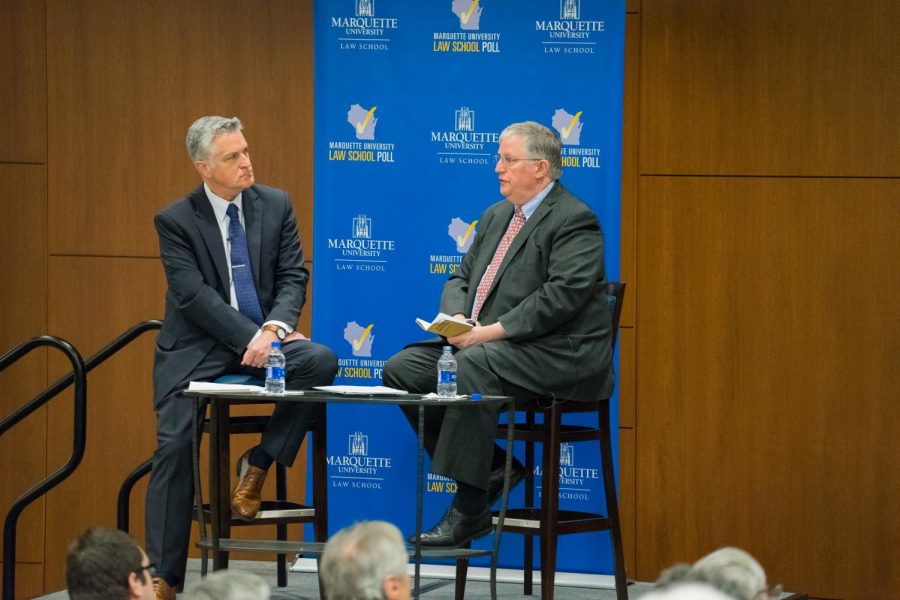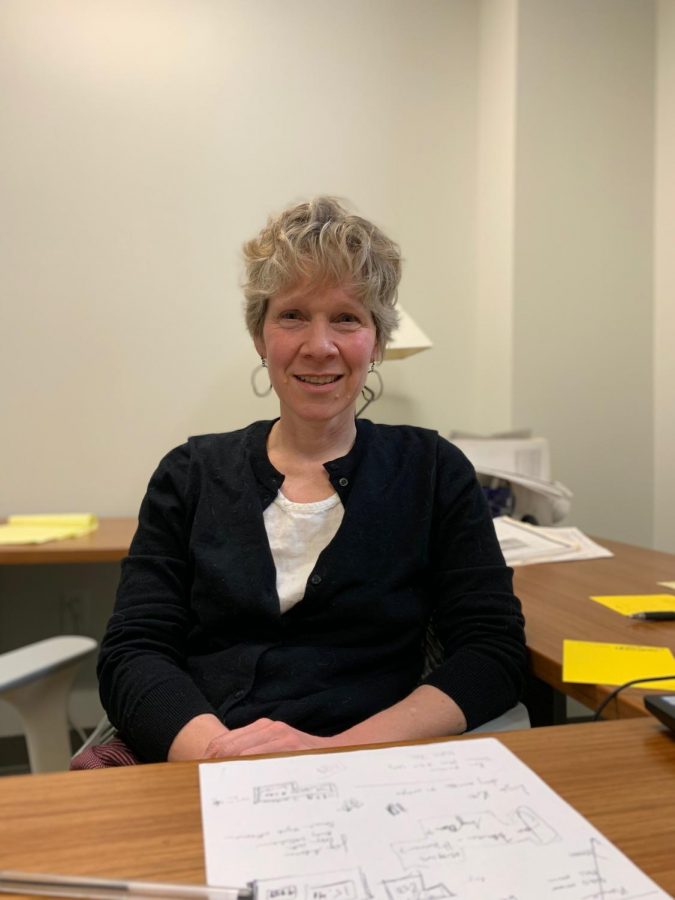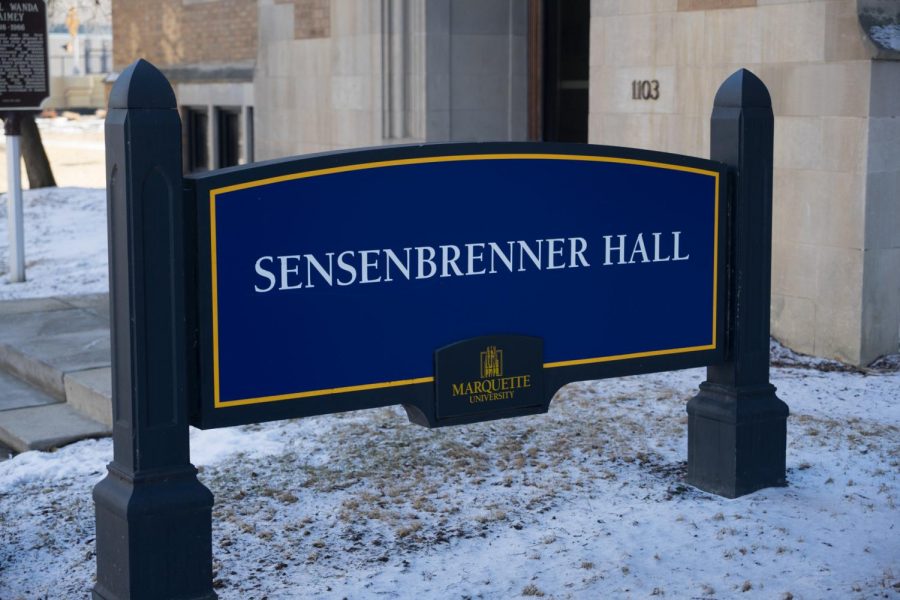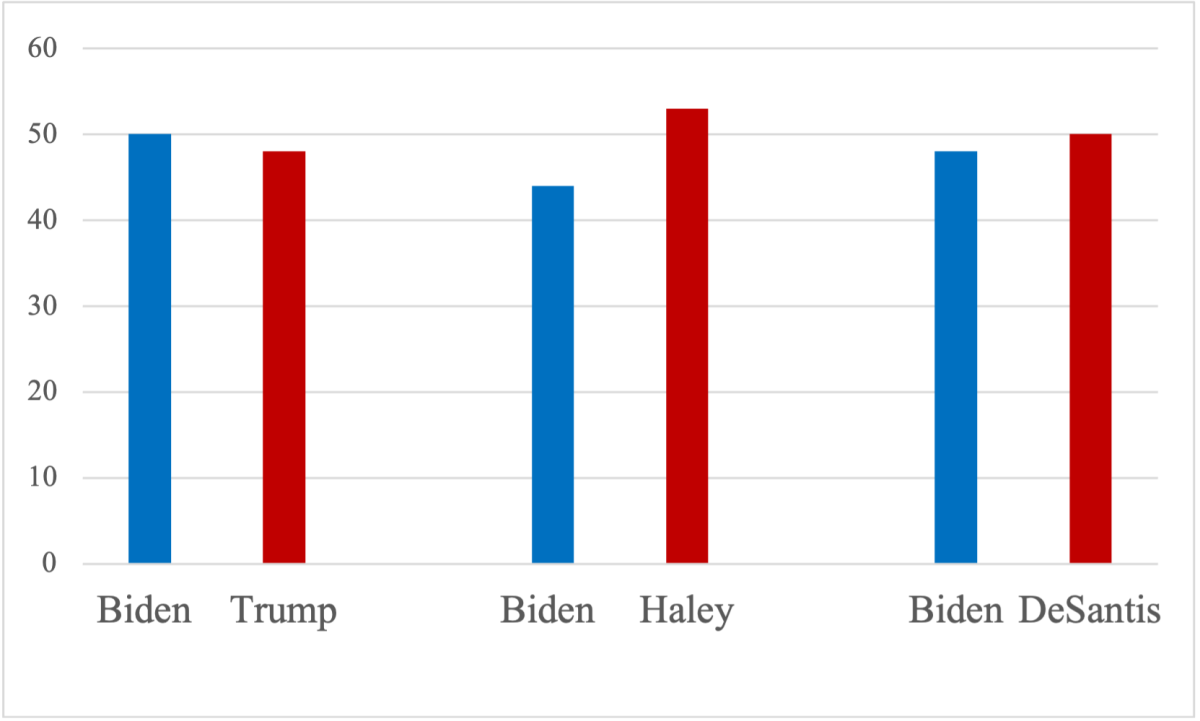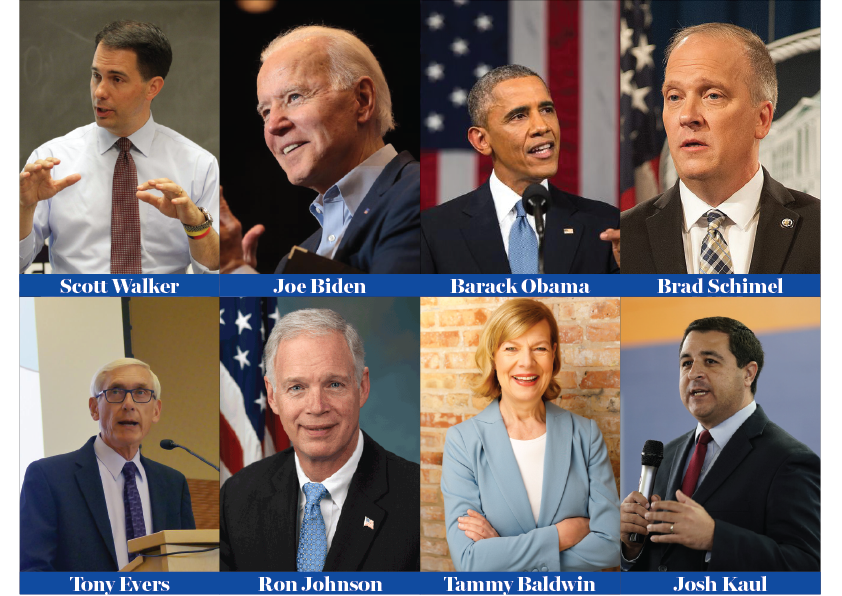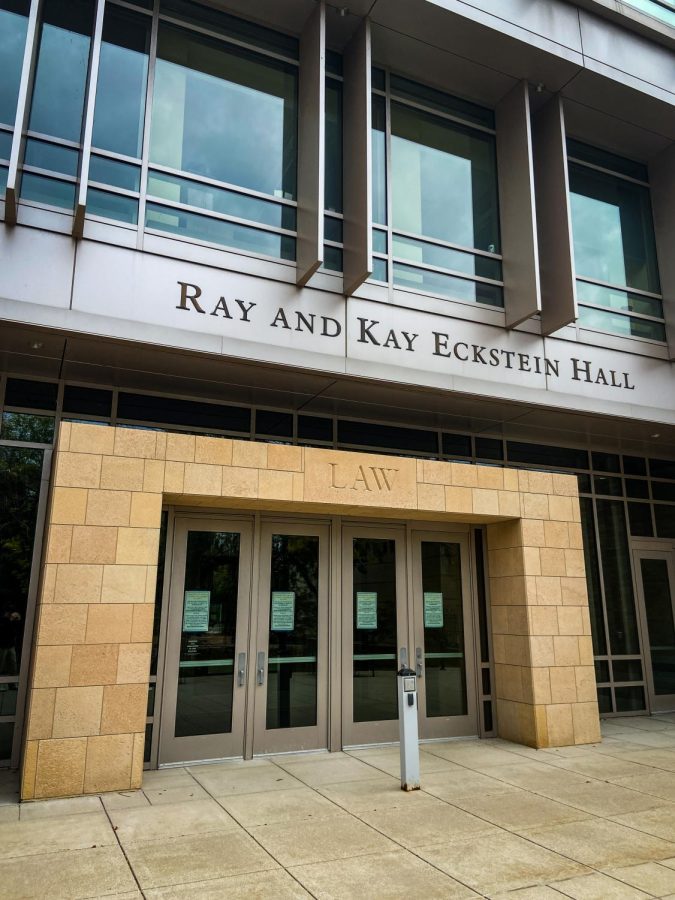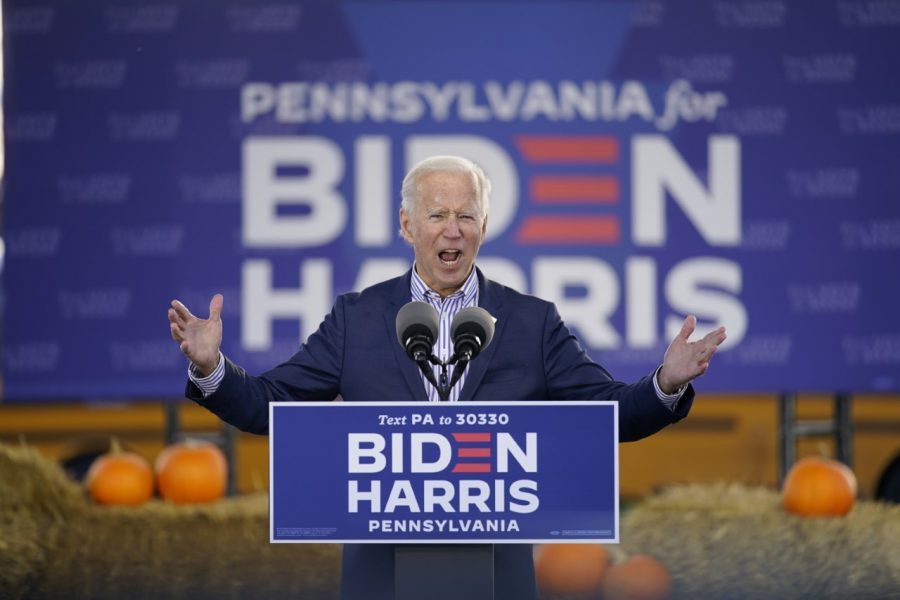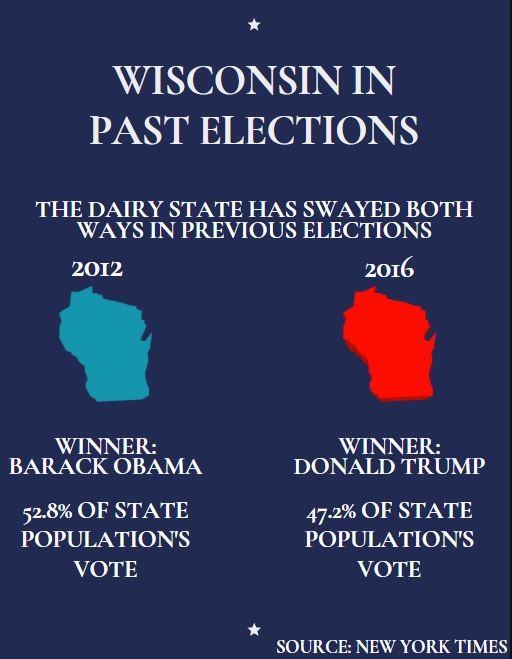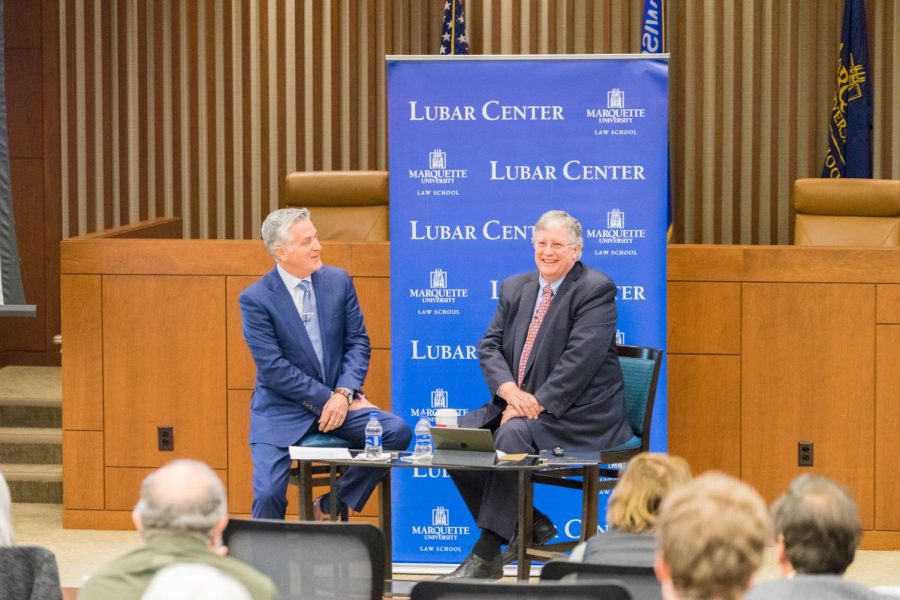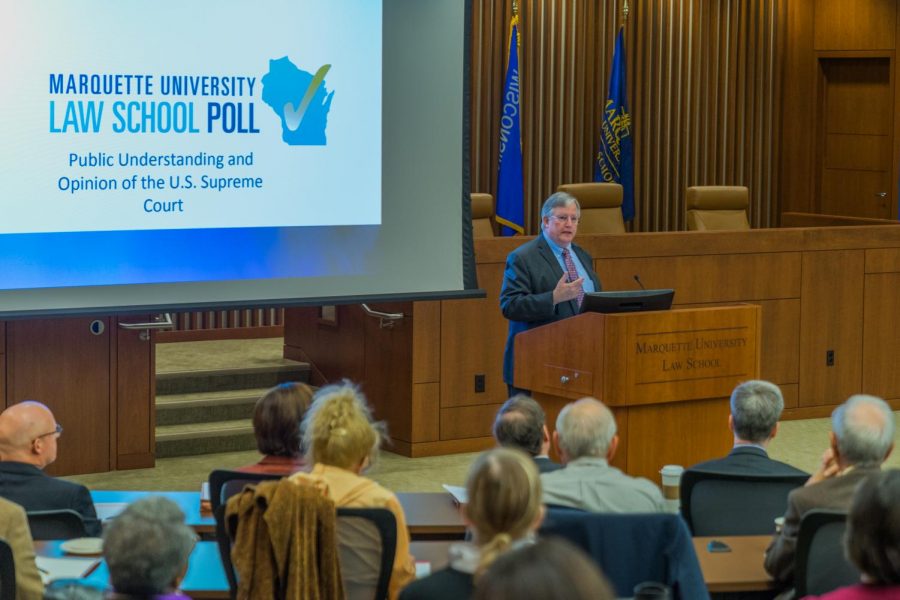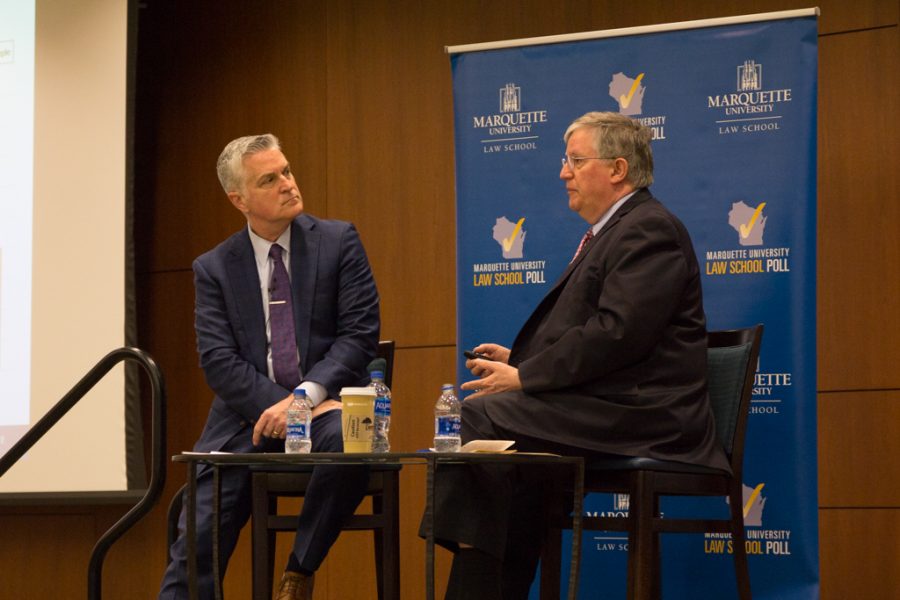As the November election looms over the nation, campaign projects such as the Campus Compact Safe Elections Project are urging students to replace the elderly workers who usually man the polls as they are at greater risk for COVID-19.
Liz Wiltgen, sophomore in the College of Nursing, is a student recruiter for the Safe Elections Project, which is a 3-week-long paid commitment entailing recruiting young election workers.
“Campus Compact partners with universities around the nation to educate students about civic engagement and social responsibility, and is also partnering with Power The Polls on this specific project,” she said. “Since Marquette is a partner school, I was informed of the job opportunity through the Center for Community Service and work specifically to recruit our students and alumni. ”
Power the Polls is an initiative which aims “to recruit poll workers to ensure a safe, fair election for all voters,” according to its website.
“The goal of the Safe Elections project is to register 6,000 new poll workers to work in November, so that our elections remain safe and fair,” she said. “We are in a nationwide critical poll worker shortage, as 56% of poll workers have historically been over the age of 60. That demographic is not as willing and able to work elections this year due to the pandemic, and young people need to step up and take their places.”
Wiltgen encouraged those not at increased risk for COVID-19 to go to PowerThePolls website to sign up. Workers will be paid around $250 for the Nov. 3 election.
“I care deeply about democracy and the right to vote, so ensuring our elections can run safely and fairly is of course of utmost importance to me,” Witigen said. “Everyone should have a voice in their government, and if polling sites are forced to close, access to voting in a timely and socially distant manner becomes difficult or even impossible.”
In an Aug. 15 recorded discussion, “Wisconsin: The State of the Race,” Charles Franklin, the director of the Marquette Law Poll, and Mike Gousha, Distinguished Fellow in Law and Public Policy at the Marquette Law Poll, spoke about the importance of Wisconsin in the coming election.
“In 2016, we had a race that was decided in the electoral college by the three states: Wisconsin, Michigan and Pennsylvania,” Franklin said in the discussion. “With those three states, Donald Trump took an electoral college majority but he won the three states by a total of 77,000 votes, 23,000 here in Wisconsin.”
Gousha said that other “battleground states” have also emerged since the previous election, such as North Carolina, Florida and Arizona.
“The battleground seems to have expanded a bit,” Franklin said. “Polling is showing either a tight race or Biden leading by a little bit.”
The latest Law School poll, released Aug. 11, showed Democratic presidential candidate Joe Biden leading President Donald Trump by five points in Wisconsin. However, neither candidate has more than 49% support in Wisconsin, reaffirming the state’s status as a battleground state.
Amelia Zurcher, director of the honors program, emailed honors students to reinforce Wiltgen’s call for student poll workers and to encourage students to get out the vote.
“Consider working with Common Ground or other (organizations) this fall to be part of the difference for democracy,” she said in the email.
Common Ground is a nonpartisan organization from Southeast Wisconsin that identifies issues in its members’ communities and implements creative solutions, according to its website.
“We believe that people working together have the power to improve our community and our world,” the website said. “We challenge ourselves to imagine positive changes. We set bold goals, we create realistic strategies and we are willing to face powerful interests. We mobilize thousands of people so that our voices can be heard. We get results.”
In order to vote, Marquette students must register, and Wiltgen said that the university’s voter information website is the best way to find out how to do so. She said the website is regularly updated to reflect changes due to COVID-19 and has tips to walk students through the process of voting.
Witigen said there are four ways for Marquette students to vote. They have the option to vote online, through mail-in ballots, in person at their Municipal Clerk’s office or in-person on election day.
She said that students who choose to register online can do so at the MyVote Wisconsin website.
Wiltgen also encourages students to vote by mail if they can to relieve the burden on poll workers. Additionally, she said that students should mail in their ballots early in case of USPS delays.
“Since we are in a shortage of poll workers, if polling sites are forced to close or reduce capacity, having as many absentee voters as possible will help those unable to vote by mail to participate in our democracy,” she said. “It’s also important in terms of COVID-19, as it’s one less way to potentially expose yourself or others to the virus.”
Wiltgen said that students should educate themselves before heading to the polls, since the presidential election is not the only one on the ballot despite being the most heard about.
“This year, Milwaukee’s ballot includes state representatives, the district attorney, as well as members of the House of Representatives” she said. “These positions make laws and decisions on all levels of government, and it is so important that you choose officials who will best represent your needs.”
Wiltgen suggested Ballotpedia or candidates’ websites as possible sources for students to find out about candidates’ positions.
“This issue is incredibly close to home for all of us at Marquette, as we saw the disastrous results of the April election in Milwaukee,” Wiltgen said. “Partially due to a lack of poll workers, the city reduced its 180 polling sites to only five. The result was long lines, lack of social distancing, and many eligible voters not being able to cast a ballot. It has happened here before, and we have the power to stop it from happening again.”
This story was written by Shir Bloch. She can be reached at [email protected].

